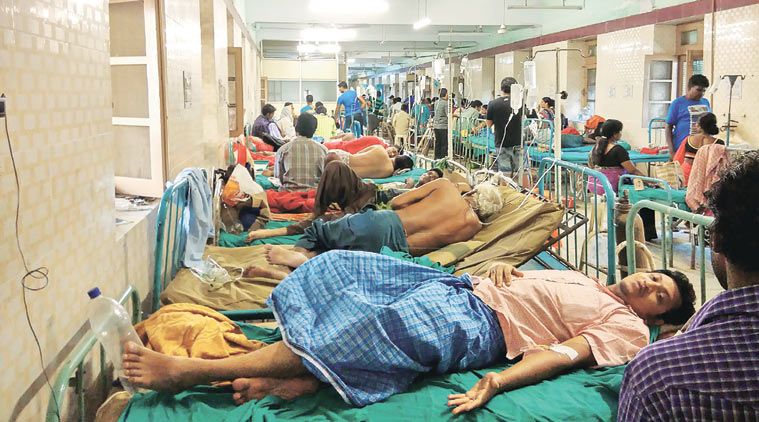Dengue outbreak in Sri Lankas
July 7, 2017 | Expert Insights

Sri Lanka is suffering its worst-ever dengue outbreak, with the mosquito-borne virus killing 225 people and infecting more than 76,000 this year. Alarmed by the magnitude of the crisis, the government deployed 400 soldiers and police officers on Tuesday to clear away rotting garbage, stagnant water pools and other potential mosquito-breeding grounds.
Dengue crisis
The number of infections nationwide is already more than 46% higher than last year.
More than 55,150 people were diagnosed with dengue and 97 died, according to the Health Ministry.
The highest number of cases is in the region around the main city of Colombo. Inspections of houses, government buildings and vacant land were being carried out by health officials and police.
Since Thursday steps have been taken to pursue legal action against 139 people found in the inspections to be maintaining mosquito breeding grounds.
Analysis
The World Health Organisation (WHO) estimates that globally there are 50 to 100 million dengue infections annually.
Sri Lanka has been grappling with dengue for much too long without being able to find a solution. Although many actions have been carried out against the spread of the disease during the past many years, looking back, they all seem to have fallen far too short of delivering the desired results.
Last month, in Kerala, India, of the 19,000 patients who reported at hospitals with fever, there were 680 suspected dengue cases, of which 138 were tested positive. Also, 11 people died 15 days back, taking the dengue toll in the state to 115 in 2017.
Assessment
Our assessment is that, it is extremely important for people to cooperate and work with governments. The inability to get public committed has been an impediment. Citizens should be vigilant and should prevent mosquito from breeding. There is a crucial need for a programme to mobilize the community for effective dengue control.








Comments